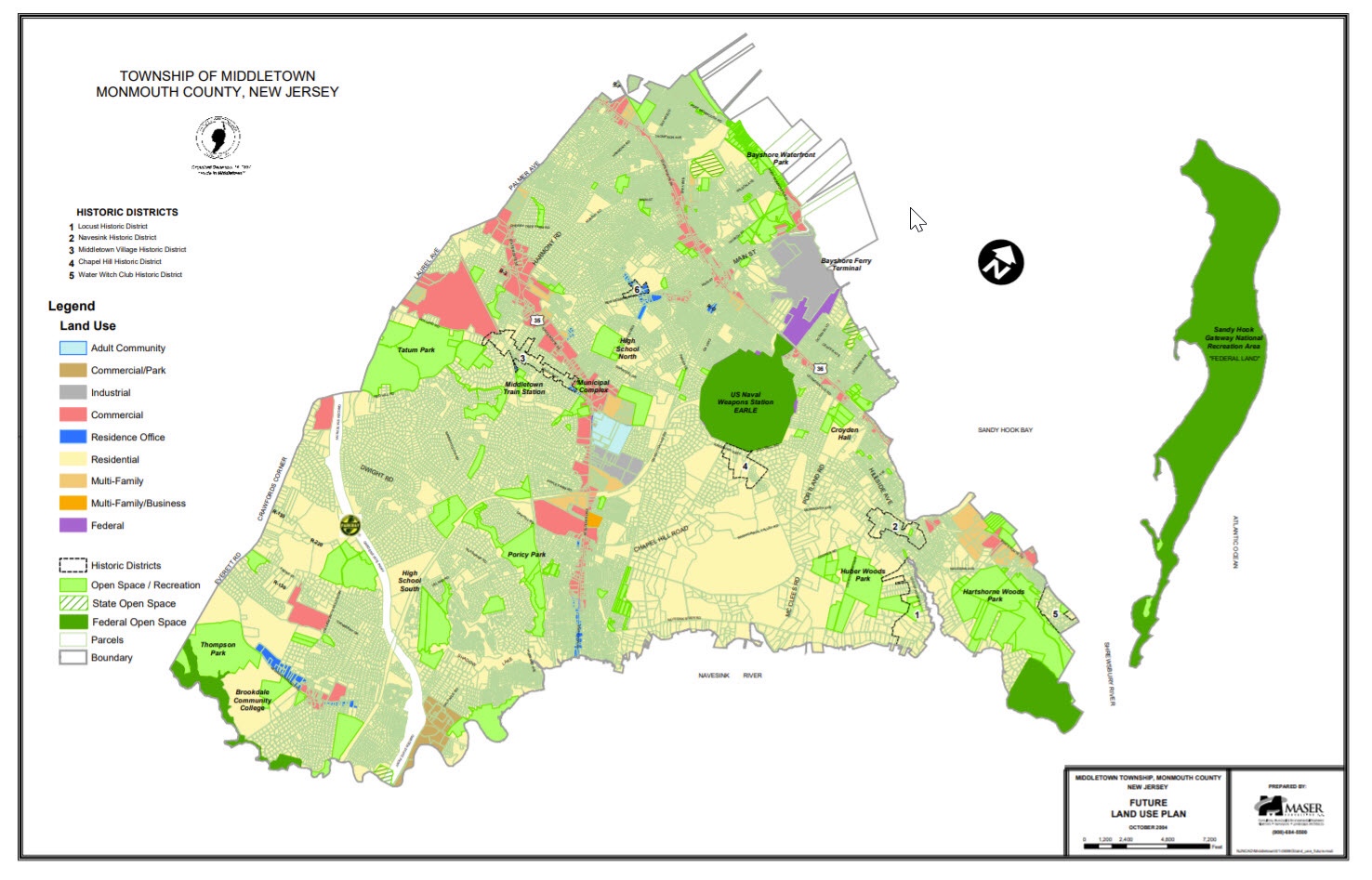The concept of comprehensive planning is very much related to the economic prosperity of communities. In New Jersey, a master plan can be a tool for planning the future growth or, in some cases, to address the decline of the municipality.Without a master plan, the community will fail to adapt to change or to take advantage of development and growth opportunities, or more importantly to go into decline.
In New Jersey, The Municipal Land Use Law grants towns the power to enact a master plan to set land-use priorities and direction, as well as adopt a zoning ordinance to dictate where and in what form development should happen.
Master plans are generally prepared to address compatibility issues between various uses of land, management and preservation of natural resources, Identification and preservation of cultural resources, and adequate planning for infrastructure needs. In other instances, comprehensive plans area utilized to address issues related to schools, recreation, and housing – and increasingly public health concerns.
In a Guidebook for Citizen Planners prepared for the State of Georgia by V. Gail Easley, FAICP and Glenn Coyne, AICP, their answer to “why plan?” Is simple and direct:
PLANNING IS A BENEFIT TO THE COMMUNITY
“Effective planning ensures that future development will occur where, when, and how the community and local government wants. There are several important benefits to the entire community that result from the planning process:”• Quality of life is maintained and improved.• There is a vision, clearly stated and shared by all, that describes the future of the community.• Private property rights are protected.• Economic development is encouraged and supported.•
There is more certainty about where development will occur, what it will be like, when it will happen, and how the costs of development will be met.
What is of importance in an effective plan as described by Easley and Coyne is the need to address of private property rights. Secondly, is the recognition that economic development benefits to the community. All too often, cities have used the comprehensive planning process to create exclusionary zoning and discourage diversity of land uses in favor of single use zones that potentially result in unsustainable commercial and residential development.
Lastly, a master plan that sets forth clear expectations for the future development of the municipality which creates predictability for both the residents and businesses is an important, but typically neglected or understated element of a comprehensive plan
In New Jersey, The Municipal Land Use Law grants towns the power to enact a master plan to set land-use priorities and direction, as well as adopt a zoning ordinance to dictate where and in what form development should happen.
One of the first elements a planning board to consider in the preparation of a master plan is to develop objectives principles assumptions policies and standards related to the purpose of planning.
In the case of Middletown this process starts with the following statement
The Middletown Township Master Plan is a general guide for the physical, economic, and social development of the Township. The Master Plan was developed in accordance with the provisions of the New Jersey Municipal Land Use Law (N.J.S.A. 40:55 D) and is designed to guide development and redevelopment of lands within the Township in a manner which will promote and protect the public health, safety, morals, and general welfare of the present and future residents of Middletown Township.
As set forth in the plan: The Middletown Township Master Plan is based upon several assumptions:
“1. That there will be no catastrophic man-made or natural disasters which will greatly affect the existing natural and/or cultural development of the Township or the Township’s ability to implement the Master Plan. “
The plan was adopted in 2004.
2. That Middletown Township will be able to guide its growth in accordance with the Municipal Land Use Law and will have meaningful input into any proposed County, MIDDLETOWN MASTER PLAN Objectives, Principles, Assumptions, Policies & Standards
4 Regional, State and/or Federal development plans which may affect the Township or its immediate environs.
3. That future growth during the next ten (10) year period will not exceed the capacity of the Township to provide essential community facilities, utilities and/or services.
The plan contains 20 objectives 20 objectives that will guide the economic and social development of the city. Before they are addressed in any detail herein. The assumptions of Master Plan should be considered.
J. Wayne Oldroyd is a differently abled photographer, retired city planner, and grandfather of four.
COMMUNITY PLANNING PERSPECTIVES-educating citizen planners in New Jersey https://wayneplanworld.com/
OLDROYD PHOTOGRAPHY-images of the built natural & environment oldroydphotography.com












